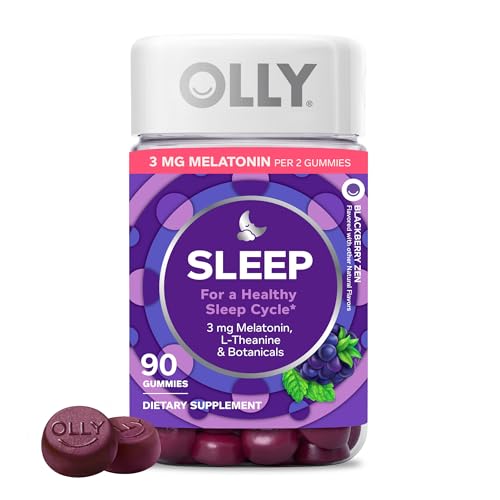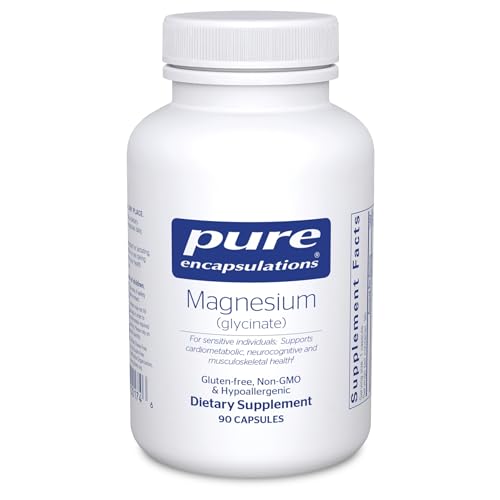Disclosure
This website is a participant in the Amazon Services LLC Associates Program, an affiliate advertising program designed to provide a means for us to earn fees by linking to Amazon.com and affiliated sites.
If you’ve ever tossed and turned at night wondering how to fall asleep faster, you’re not alone—and yes, the right foods can help you sleep better tonight.
Sleep isn’t just about winding down. It’s a biological process regulated by hormones, neurotransmitters, and even what’s on your plate. In fact, certain foods contain nutrients like magnesium, tryptophan, melatonin, and B vitamins that directly support sleep quality and relaxation.
Here’s the truth: your diet and sleep are deeply connected, and with a few smart food choices, you can significantly improve your nightly rest. Think of it as eating your way to a better night’s sleep—deliciously and naturally.
But not all “sleep-promoting foods” are created equal. That’s why we’re breaking down the most effective options, why they work, and how to include them in your diet. Whether you’re struggling with falling asleep, staying asleep, or waking up too early, the right bedtime snacks can make a real difference—starting tonight.
Ready to finally get the rest you deserve? Let’s explore the foods that truly nourish your sleep.
Best Supplements for Sleep Support
While food is a powerful tool for improving sleep, some natural supplements can also support your nighttime routine. If you’re looking for a simple, effective way to fall asleep faster and stay asleep longer, these top-rated products can help:
Nature Made Melatonin 5mg Tablets
This non-habit-forming melatonin supplement helps reset your sleep-wake cycle, especially useful for jet lag or irregular schedules.
- Occasional use sleep support supplement: Contains one 90 count bottle of Nature…
- Adults take one of these 5mg Melatonin sleep supplements one hour before bedtime…
- Melatonin is a hormone found naturally in the body that helps to regulate sleep…
OLLY Sleep Gummies
These tasty berry-flavored gummies combine melatonin, L-Theanine, and botanicals to ease you into restful sleep without grogginess.
- OLLY SLEEP GUMMIES: Our Melatonin gummies, with L-Theanine and Botanical…
- THE GOODS INSIDE: Featuring 3mg of Melatonin, a sleepy time superstar ingredient…
- HOW TO TAKE: Take 2 gummies 30 minutes before bed. Chew thoroughly before…
Magnesium Glycinate by Pure Encapsulations
Magnesium supports relaxation and nerve function, and this gentle form is ideal for sensitive stomachs or daily use.
- Heart Health Supplements: This magnesium glycinate capsule activates the enzymes…
- Energy & Bone Support: Magnesium supports metabolism of carbs and amino acids…
- Overall Health & Nutrient Metabolism: This magnesium glycinate supplement helps…
Each of these products has been selected based on ingredient transparency, effectiveness, and thousands of positive user reviews. They’re trusted by many who have struggled with sleep and found reliable relief through gentle, natural supplementation.
How Nutrition Affects Your Sleep
What you eat profoundly influences how well you sleep. Nutrition affects the production of sleep-related hormones and brain chemicals, like melatonin and serotonin, which regulate your sleep-wake cycle.
Certain nutrients promote relaxation and help prepare your body for rest. For example, magnesium acts as a natural muscle relaxant and reduces stress, while tryptophan is an amino acid precursor to serotonin and melatonin. These nutrients can improve both the time it takes to fall asleep and the quality of deep, restorative sleep.
Conversely, foods high in sugar or caffeine can disrupt your sleep by stimulating your nervous system or causing blood sugar spikes. Eating large meals or heavy, greasy foods too close to bedtime can also lead to discomfort, indigestion, and restless nights.
Top Sleep-Enhancing Foods to Include Tonight
Incorporating specific foods into your evening routine can help you fall asleep faster and enjoy deeper rest. Here are some of the best natural sleep aids you can easily add to your diet tonight:
- Almonds
Rich in magnesium and calcium, almonds help relax muscles and nerves. They also contain melatonin, the hormone that regulates sleep cycles. - Kiwi
Studies show that eating kiwi before bed can improve sleep onset, duration, and efficiency. This is likely due to its antioxidant content and serotonin-boosting properties. - Chamomile Tea
A centuries-old remedy, chamomile contains apigenin, an antioxidant that binds to brain receptors promoting calmness and sleep. - Tart Cherry Juice
Tart cherries are a natural source of melatonin. Drinking tart cherry juice has been linked to better sleep quality and duration in multiple studies. - Oatmeal
Oats provide complex carbs and melatonin, which support serotonin production. This makes oatmeal a comforting, sleep-friendly evening snack. - Turkey
Turkey is famously rich in tryptophan, which boosts melatonin and serotonin levels, helping you relax and prepare for sleep.
Try combining these foods with a calming bedtime routine for maximum benefit. For example, a small bowl of oatmeal topped with sliced kiwi or a handful of almonds paired with chamomile tea can be both delicious and sleep-enhancing.
Foods and Substances to Avoid Before Bed
Just as some foods help you sleep, others can seriously disrupt your rest if consumed too close to bedtime. Being mindful of what to avoid is just as important as knowing what to eat.
- Caffeine
Found in coffee, tea, chocolate, and many sodas, caffeine is a stimulant that can stay in your system for 6 to 8 hours. It blocks the brain chemical adenosine, which promotes sleepiness, making it harder to fall asleep. - Alcohol
While alcohol might initially make you feel sleepy, it disrupts your sleep cycle later in the night. It reduces REM sleep—the most restorative stage—leading to fragmented, poor-quality sleep. - Heavy or Spicy Foods
Eating large portions, spicy dishes, or greasy fast food too late can cause indigestion, acid reflux, and discomfort. These symptoms often interfere with falling asleep and cause night awakenings. - Sugary Snacks and Refined Carbs
Foods high in sugar or white flour can cause blood sugar spikes followed by crashes. These fluctuations can trigger wakefulness and restlessness during the night. - High-Water-Content Foods
Melons, cucumbers, and other watery foods may increase nighttime urination, disrupting your sleep cycle.
Avoiding these substances, especially in the 3-4 hours before bed, can dramatically improve how quickly you fall asleep and how well you stay asleep throughout the night.
How to Incorporate Sleep-Friendly Foods Into Your Routine
Adding sleep-supportive foods into your daily routine doesn’t have to be complicated. Simple adjustments to your meals and snacks can create a natural sleep aid that helps you wind down each evening.
Start by making your dinner lighter and earlier in the evening to prevent indigestion and give your body time to digest. Focus on including a balance of complex carbs and lean protein, such as turkey or legumes, which provide tryptophan and steady energy.
For a bedtime snack, opt for small portions of sleep-friendly foods like a handful of almonds, a kiwi, or a cup of chamomile tea. These options promote relaxation without overloading your digestive system.
Meal prepping or planning helps ensure you always have sleep-supportive options on hand. For example, prepping overnight oats with sliced kiwi or keeping tart cherry juice in the fridge makes healthy choices convenient and appealing.
Also, maintain consistency. Eating the right foods regularly, especially in the hours leading up to bedtime, helps regulate your sleep-wake cycle naturally.
The Role of Hydration in Sleep Quality
Proper hydration plays a subtle yet important role in your sleep quality. While staying hydrated is essential for overall health, drinking too much liquid right before bed can lead to frequent bathroom trips, interrupting your sleep cycle.
Water helps regulate your body temperature and supports metabolic functions that influence sleep. Dehydration, on the other hand, can cause dry mouth, nasal passages, and even leg cramps, all of which can make falling asleep more difficult.
Balancing hydration means drinking enough fluids throughout the day but tapering off in the evening. Aim to finish your main fluid intake at least two hours before bedtime.
Certain herbal teas, such as chamomile or valerian root, can hydrate you gently while also promoting relaxation without the diuretic effect of caffeine or alcohol.
In summary, staying well-hydrated during the day while limiting late-night fluids helps optimize your sleep environment and reduces disruptions caused by needing to wake up.
Conclusion
Choosing the right foods can be a simple, effective way to improve your sleep quality starting tonight. Nutrient-rich options like almonds, kiwi, turkey, and chamomile tea provide natural compounds that support relaxation and regulate sleep hormones. At the same time, avoiding stimulants like caffeine, heavy meals, and alcohol close to bedtime helps prevent common sleep disruptions.
Incorporating sleep-friendly foods into a consistent evening routine can make falling asleep easier and deepen the restorative phases of your rest. Remember, hydration also plays a crucial role, so balance your fluid intake wisely throughout the day.
By understanding and leveraging the powerful connection between nutrition and sleep, you’re setting yourself up for better energy, mood, and overall health. Sweet dreams are just a plate away!
For more on natural sleep tips and healthy routines, check out our articles on [7 Relaxing Bedtime Rituals] and [How to Create the Perfect Sleep Environment].
Frequently Asked Questions About Which Foods Can Help You Sleep Better Tonight
What foods are best to eat right before bed for better sleep?
Light snacks rich in magnesium, tryptophan, and melatonin are ideal before bed. Examples include almonds, kiwi, tart cherry juice, and a small bowl of oatmeal. These help relax your muscles and boost sleep hormones without causing discomfort.
Can drinking tea help me sleep better?
Yes, herbal teas like chamomile and valerian root are popular natural sleep aids. They contain antioxidants that promote calmness and reduce anxiety. Avoid caffeinated teas as they can interfere with falling asleep.
How long before bedtime should I stop eating?
It’s best to finish large meals at least 2-3 hours before bed to avoid indigestion and acid reflux. Small sleep-friendly snacks can be enjoyed closer to bedtime, ideally 30-60 minutes before lying down.
Are supplements better than food for improving sleep?
Supplements like melatonin or magnesium can be effective, especially for short-term sleep issues. However, whole foods provide a broader range of nutrients that support overall health and sustainable sleep improvements without side effects.
Does hydration affect my sleep?
Yes, staying hydrated is important, but drinking too much fluid close to bedtime can cause nighttime awakenings for bathroom trips. Balance your water intake during the day and reduce fluids 1-2 hours before bed.



